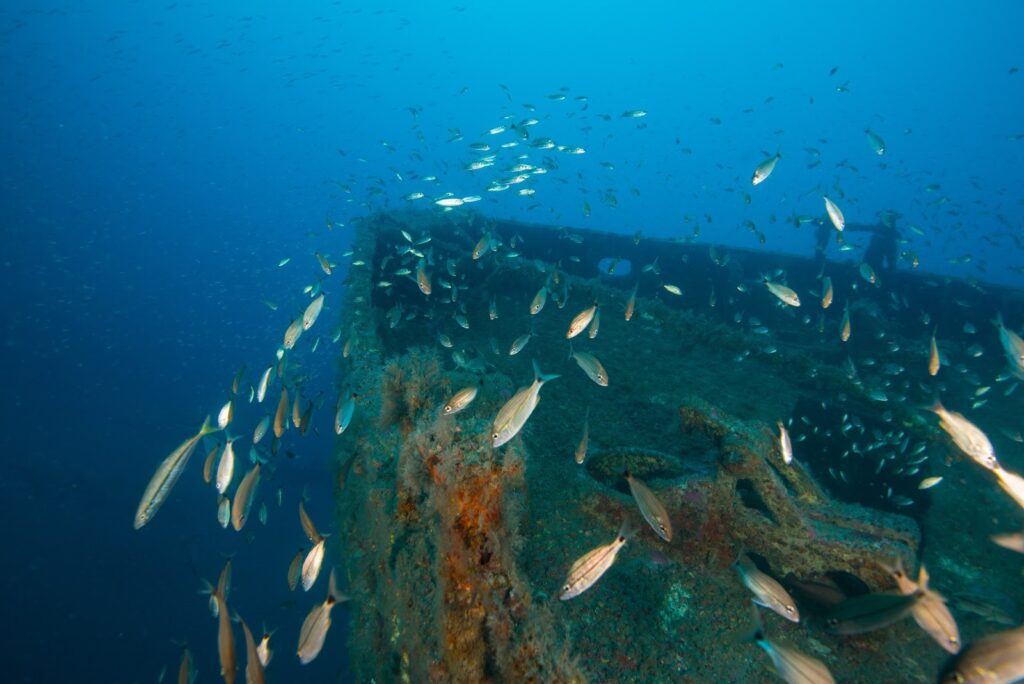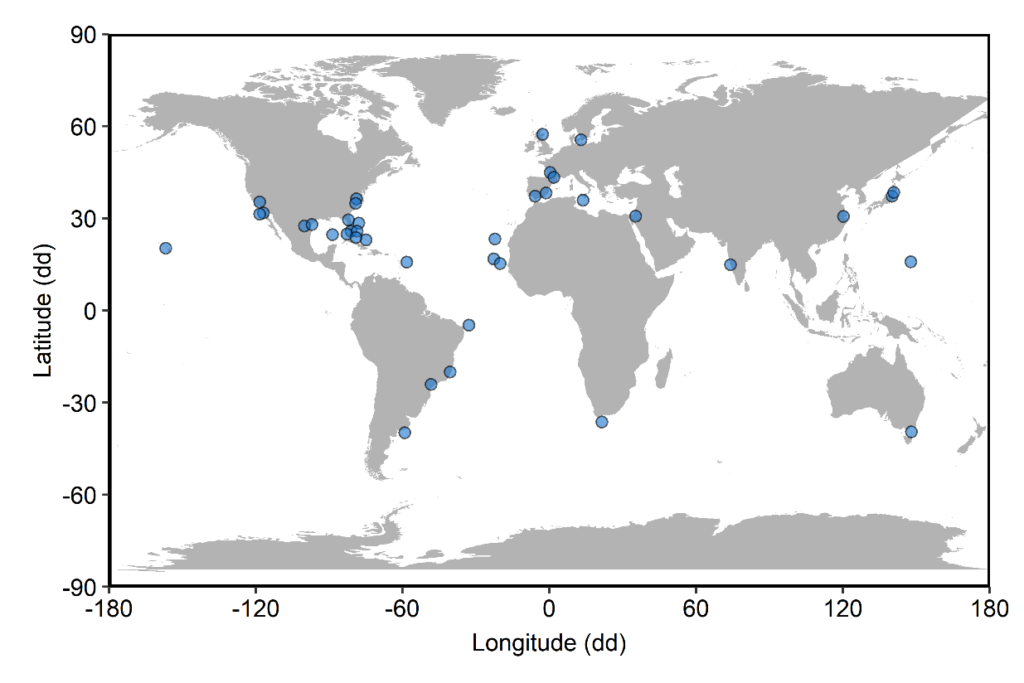Structures, such as vessels, concrete pipes, and bridge pieces, are intentionally placed on the seafloor as artificial reefs. These artificial reefs can be effective tools for enhancing fish communities, but solutions are not “one size fits all", a new NOAA study suggests.

Artificial reefs, such as this one off North Carolina, can support similar fish communities to nearby natural reefs, a synthesis led by NOAA finds. (Photo credit: J. McCord / Coastal Studies Institute).
Scientists from NOAA National Centers for Coastal Ocean Science (NCCOS) and Southeast Fisheries Science Center (SEFSC) synthesized findings from 39 global, peer-reviewed publications that compared fish communities on artificial and natural reefs.
“Our team found that artificial and natural reefs tend to host similar amounts and varieties of fish as neighboring rocky or coral reefs” said Dr. Avery Paxton, a research associate with CSS Inc. under contract to NCCOS, who was lead author of the study.
Despite the overall conclusions that artificial and natural reefs perform similarly as fish habitat, the team discovered that artificial reefs in certain locations or composed of particular materials may perform better than others. “While we are not advocating for broad deployment of reef materials, our findings show that artificial reefs can benefit fish communities, however, location-specific siting and evaluations will be critical to their effectiveness” states Dr. Chris Taylor, a research ecologist at NCCOS and a co-author of the study.

Locations of 39 studies comparing fish on artificial and natural reefs included in the synthesis. From Paxton et al. 2020.
The team’s findings support state and federal calls to enhance ocean habitats and fish communities through artificial reefs. “This publication benefits the North Carolina Artificial Reef Program by concisely expressing the ecological role of artificial reefs on a local and global scale” said Zach Harrison, an artificial reef biologist at North Carolina Division of Marine Fisheries. “Not only does it show that artificial reefs function as an effective supplement to natural reefs, but it also supports the use of construction and management strategies tailored to the North Carolina coastal system” Harrison said.
“We hope that our findings will support decisions by state and federal managers to maximize the likelihood of artificial reef success, especially as related to NCCOS and NOAA’s mission to guide ocean stewardship in support of the Blue Economy.” concludes Taylor.
Funding for the research synthesis was provided by NCCOS and Consolidated Safety Services, Inc.
CITATION: Paxton, A.B., K.W. Shertzer, N.M. Bacheler, G.T. Kellison, K.L. Riley, and J.C. Taylor. 2020. Meta-analysis reveals artificial reefs can be effective fish habitat enhancement tools but are not one-size-fits-all. Frontiers in Marine Science 7:282. DOI: 10.3389/fmars.2020.00282
 Official websites use .gov
A .gov website belongs to an official government organization in the United States.
Official websites use .gov
A .gov website belongs to an official government organization in the United States. Secure .gov websites use HTTPS
A lock or https:// means you’ve safely connected to the .gov website. Share sensitive information only on official, secure websites.
Secure .gov websites use HTTPS
A lock or https:// means you’ve safely connected to the .gov website. Share sensitive information only on official, secure websites.